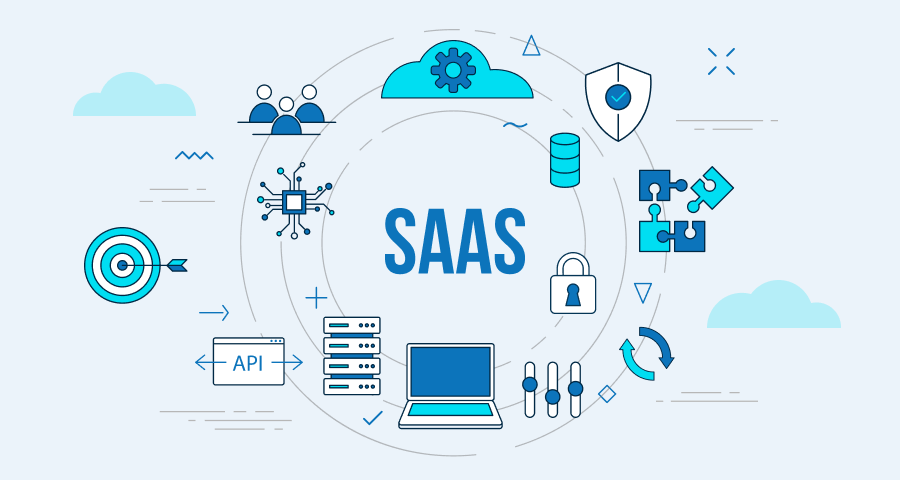Adam Jaffe offers a vendor-neutural primer on SaaS IP management platform, with foundational guidance on how SaaS can help transform the management of patents, trademarks, copyrights, and trade secrets.
Over the last decade, the rise of Software as a Service (SaaS) in Intellectual Property (IP) management systems has revolutionized the way businesses manage their IP assets. Traditional IP management systems are often cumbersome, expensive, and lack the flexibility needed in today’s fast-paced business environment. The advent of SaaS solutions like RightHub Enterprise, Maxval Symphony, Clarivate’s IPfolio, and Questel EC+ has addressed many of these issues, offering cloud-hosted platforms that are cost-effective, scalable, and easily accessible. RightHub’s product is based on the Microsoft Power Platform, whereas other vendors use Salesforce as the foundation for their solutions.
Among the greatest benefits of SaaS solutions are enhanced workflows and superior reporting. These solutions are also highly configurable and more easily integrated with other systems in an organization. While docketing has always been core to IP Management Systems, SaaS platforms increasingly emphasize broader, cross-functional engagement across business units, including inventors, attorneys, paralegals, outside counsel, and other service providers. This broader engagement, while valuable, may introduce new compliance burdens and audit trails that legal teams must proactively manage.
Many vendors offer “stand-alone” invention submission and review systems to help customers avoid incurring licensing fees for each inventor. These invention portals are typically integrated with the SaaS-based IP management system. However, the shift to cloud-hosted solutions also presents challenges. These include data security concerns, potential downtime due to internet connectivity issues, increased user costs, and the need for continuous updates to stay aligned with evolving technology and legal requirements. Organizations must assess whether the vendor’s data handling practices meet jurisdictional requirements such as the General Data Protection Regulation (GDPR), the California Consumer Privacy Act (CCPA), or China’s Personal Information Protection Law (PIPL). A data breach involving trade secrets could expose the company to regulatory enforcement, reputational damage, and litigation.
When evaluating potential IP systems, companies should thoroughly assess SaaS solutions based on their unique needs, rather than following industry trends or popular opinion. Key evaluation criteria include functionality, scalability, security features, and overall cost-effectiveness. With most solutions built on Salesforce or Microsoft Power Platform, IP departments should also consider what platforms are favored by other departments and supported by internal IT. It is also critical to include in-house legal and compliance teams early in the vetting process to assess how the system accommodates legal holds, e-discovery, and privilege protection protocols—key components of a legally defensible IP management strategy.
Companies should also investigate the provider’s reputation, including customer references, quality of customer support, and commitment to continuous product improvement. Equally important are data ownership clauses in the contract: What happens if the vendor is acquired, access is temporarily revoked, or the business relationship ends? Companies must ensure there is a clear and reliable method for exporting and retaining critical IP records under all scenarios.
The first step in implementing a SaaS-based IP system is to define the organization’s IP management needs and objectives. Once a suitable solution is selected, companies must create a detailed transition plan that includes staff training, data migration, and the development of new procedures for maintaining and updating the system. In addition, companies should carefully consider liability issues, particularly in scenarios where AI tools are used. For instance, if an AI feature misclassifies an invention or fails to identify relevant prior art, it is critical to determine whether the liability rests with the vendor or the user. Legal teams should clarify these issues in advance to avoid surprises later.
Although SaaS implementation has become more straightforward over the years, it still requires a disciplined approach. Organizations should establish standards and procedures before deployment, including how to enter and update IP data, generate reports, respond to security incidents, and maintain compliance with applicable laws and regulations. Governance frameworks should be put in place to ensure data protection and legal compliance are not afterthoughts.
Artificial Intelligence (AI) is playing an increasingly important role in SaaS-based IP management, with its promise and potential continuing to grow. AI tools can automate routine tasks, analyze large datasets, and offer predictive insights, making IP operations more efficient and strategic. While companies must be mindful of AI-related risks, including inaccurate outputs (also known as hallucinations) and inadvertent exposure of confidential information, the rapid development of AI features within these platforms strengthens client investments. For instance, MaxVal has integrated Relecura’s advanced AI tools into its Symphony platform, including NoveltyAI for AI-powered novelty searches and ClassifierAI for automated patent classification. Similarly, RightHub offers AI-enhanced patent drafting and novelty search tools, supporting AI-driven brainstorming, automated prior art discovery, and streamlined drafting processes. These features, though not yet considered core components of most IP SaaS solutions, are becoming more common and are likely to be embedded in or tightly integrated with mainstream platforms, demonstrating the industry’s bullish outlook on AI exploration.
The rise of SaaS in IP management systems presents organizations with a compelling opportunity to modernize operations, achieve cost savings, and integrate IP functions more deeply into enterprise-wide systems. The integration capabilities of SaaS platforms also enable reporting on intellectual property alongside other key business data. However, these benefits must be weighed against the complexities of implementation, security, compliance, and vendor management. By carefully evaluating their options, establishing clear policies, and leveraging emerging technologies like AI responsibly, organizations can position themselves to manage IP assets more effectively in the digital era.






